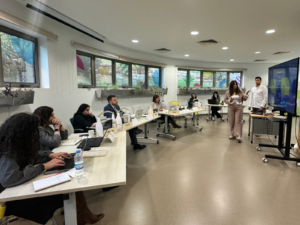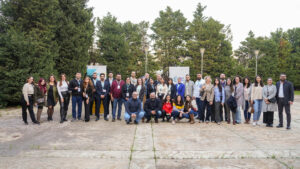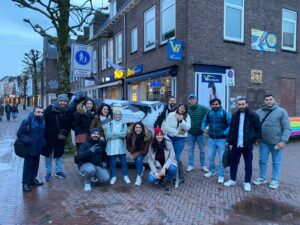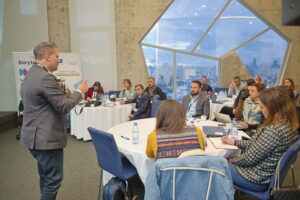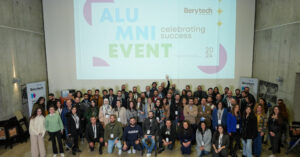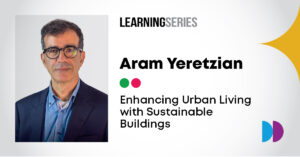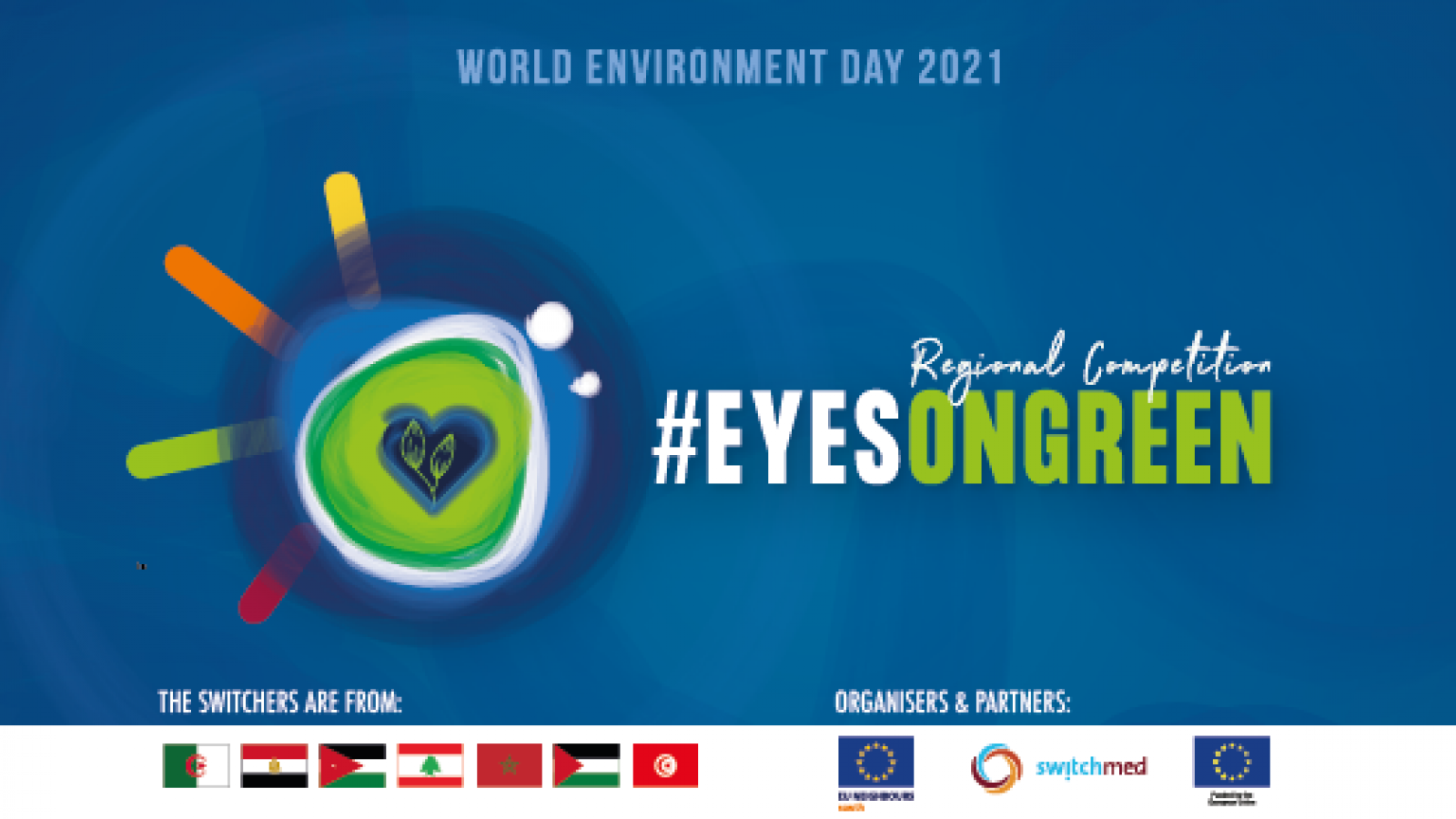
In collaboration with DG NEAR and the SwitchMed project, the EU Neighbours South team recently launched the #EyesOnGreen competition, highlighting the inspiring stories of 14 Switchers from 7 different South Med countries and their positive impact on the environment. The audience and a jury were invited to vote for their favorite profile to select 3 winners.
On June 3, an award ceremony was organized and live-streamed on Zoom and Facebook to discuss green entrepreneurship in the Southern Neighbourhood and announce the finalists. Panelists from the European Commission, the Switchmed project, the ENI-CBC MED Program and THE NEXT SOCIETY project represented by its local partner, Berytech’s Deputy GM, Ramy Boujawdeh discussed the role of sustainable entrepreneurship and support policies in #EyesonGreen recovery strategies.
In his blog post below, Ramy gives us insights based on his intervention in managing different EU-funded programs including THE NEXT SOCIETY, the implementation of these programs, and their contribution in supporting green entrepreneurs.
Green Economy as a Way to Sustain Lebanon’s Future
Berytech has been working across several programs on supporting green entrepreneurs, particularly on EU-funded programs. The partnership with THE NEXT SOCIETY started in 2018, followed by grants from the ENI CBC-MED Program on different running projects tackling green entrepreneurship and the circular economy such as GIMED, STAND Up!, BESTMEDGRAPE, Transdairy, and the NEX-Lab (read more about these programs here).
The implementation of these projects comes at a rather difficult time for Lebanon, with all the ongoing economic, social, and fiscal challenges. Yet, we see big moves into the productive sectors, and a lot of youth cautious about the environmental impact, seeking to set up and fund their green startups particularly in the space of waste management and waste valorization, water, energy, transportation, and food.
At the same time, Berytech is one of many players in Lebanon counting on the green economy as a way to sustain Lebanon’s future and counting on such entrepreneurs to make a big impact, to create more sustainable jobs and better economies, not only in big cities but also in rural communities. The truth is, there are a lot of opportunities to create green jobs across the Med. What is interesting about the startups we are working with is that all of them have the potential to scale in Lebanon and beyond its borders and take their innovations across the Med, where we believe there is a lot of work to be done.
In times of crisis, we see opportunities, and I’m very proud that our young entrepreneurs are playing that role. At the same time, there is a growing need for impact funds to look at financing green startups that bring exciting change to Lebanon and the region.
Converting Green Researchers to Green Entrepreneurs
As the number of young people who are interested and keen on solving environmental challenges through innovative solutions keeps growing, Berytech has been working on several programs in the areas of IP valorization. Lebanon and the region are home to a lot of talent, while most of the research conducted sits in drawers. With programs like the Innovation Factory and IP Valorization, we work with researchers in different universities and institutes to help them valorize their innovation, especially in the green sector.
Through THE NEXT SOCIETY, we have run local and international boot camps and I would like to share two success stories:
The first one is C Green, which started with a team of Ph.D. graduates working on their Research thesis tackling a major challenge of the sludge that comes out of wastewater treatment plants. They have worked to patent their solution that converts this human sludge into a 100% viable soil enhancer, compost that could be used in agriculture.
This innovation is crucial in the current status of Lebanon, not only for the environment but also in the economic context where prices of imported fertilizers have skyrocketed and continue to damage waterways and nature. The startup is currently in its second round of fundraising and is building its plans to scale. I’m very proud of the team that is behind it.
The second success story is Super Powder who started with us in 2018. This team of researchers worked to valorize the byproducts of agricultural waste by creating a process that recovers polyphenols out of the waste of agro-food. The team knew there was value in it but were too excited about the process itself.
They are currently working under the BESTMEDGRAPE program, looking at all the value they could create in the cosmetic and food industry by replacing the synthetic molecules with organic or natural molecules, which could make a huge impact on the way we consume cosmetics and food. We have worked with them to shift their mindset from a research-based mindset to an entrepreneurial mindset, as they are currently looking at how they can penetrate different markets and valorize that waste.
These are just two examples of the high potential we have and how programs that are funded by the EU have been extremely impactful to people especially youth in the South Med region. At Berytech, we see this impact hands-on.
Finally, I would like to focus on the importance of the linkages between the different EU-funded programs including THE NEXT SOCIETY, the ENI CBC-MED Program, the Prima program, and hopefully with the Horizon Europe coming up, where all this would link to more green entrepreneurs and more green innovations for the region from the region.
Watch the entire event here.
About the Writer
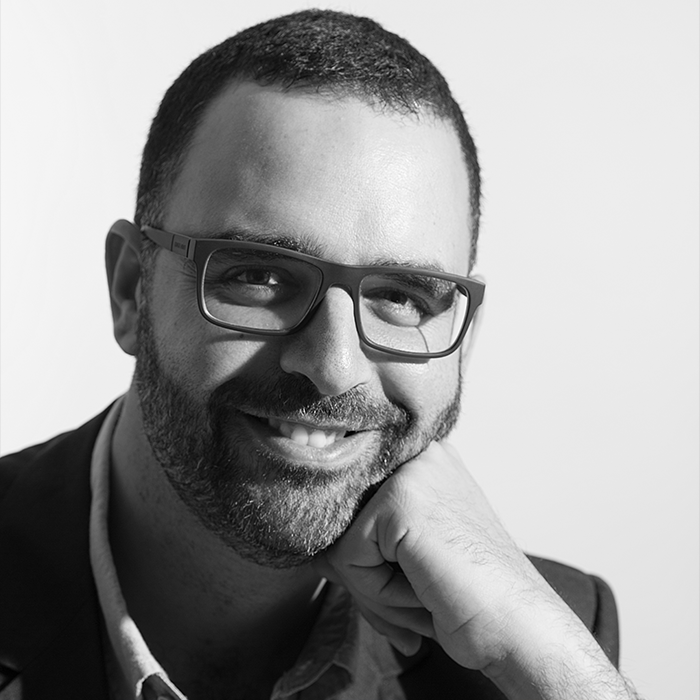 Ramy Boujawdeh joined Berytech in 2014 as the Deputy General Manager. He has been leading the Incubation and Entrepreneurship Business Development arm that supports innovative Lebanese startups and SMEs, providing Business Support, Mentorship, Coaching, Fundraising, Hosting, Networking and Internationalization and part of Innovation and Entrepreneurship regional programs. He designed and now leads the A.C.T. Smart Innovation Hub initiative, a first of its kind in MENA focusing on both Agritech and Cleantech. He is also the manager of the Regional Innovation Hub (RIH) in the MENA Region for the Water and Energy for Food (WE4F) Challenge fund.
Ramy Boujawdeh joined Berytech in 2014 as the Deputy General Manager. He has been leading the Incubation and Entrepreneurship Business Development arm that supports innovative Lebanese startups and SMEs, providing Business Support, Mentorship, Coaching, Fundraising, Hosting, Networking and Internationalization and part of Innovation and Entrepreneurship regional programs. He designed and now leads the A.C.T. Smart Innovation Hub initiative, a first of its kind in MENA focusing on both Agritech and Cleantech. He is also the manager of the Regional Innovation Hub (RIH) in the MENA Region for the Water and Energy for Food (WE4F) Challenge fund.


